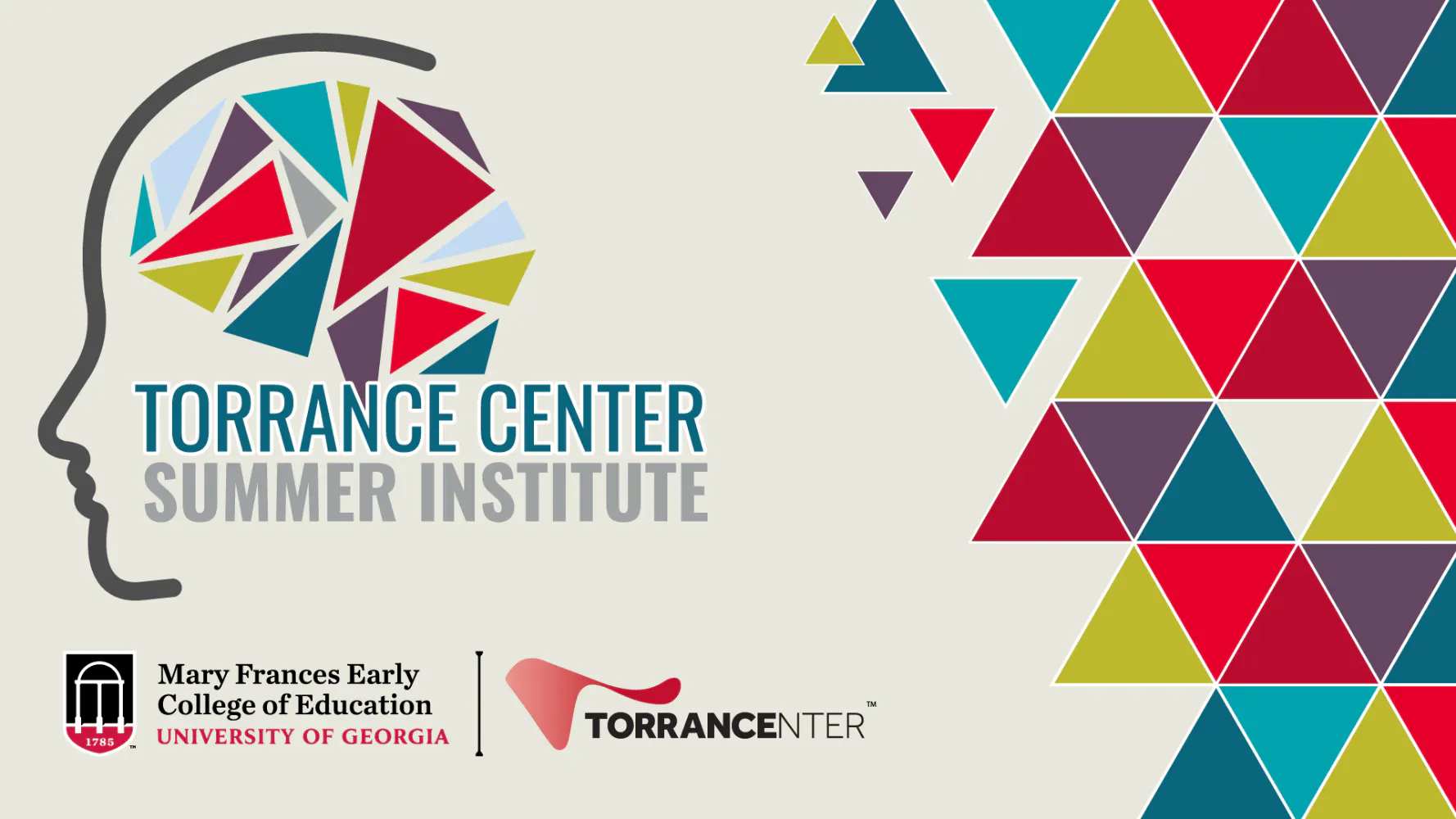Torrance Center Summer Institute
Introduction
The TCSI is a great opportunity for teaching practitioners, administrators, and researchers to receive state-of-the-art instruction and guidance for optimal pedagogical practice.
This Professional Learning institute reflects the unique academic and pedagogical expertise for which the Mary Frances Early College of Education at the University of Georgia is renowned.
TCSI 2026
June 8-11
Information COMING SOON!
Cost / Pricing

Instructors
Past Topics
- Torrance Tests of Creative Thinking scoring workshops
- Future Problem Solving for Beginners
- Diversity, Equity, and Creativity
- The Underachievement of Gifted Students
- Creative Problem Solving
- Bringing unCommon Thinking to the Common Core
- Differentiation Tools
- Teaching with Technology
- Curriculum Compacting
- Intrinsic Motivation in the Classroom
